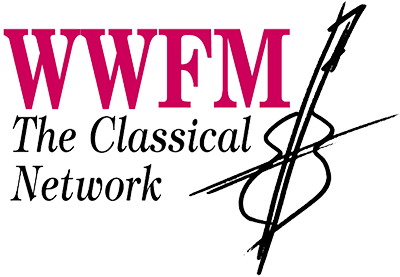Bach’s delicate gem of a cantata, No. 8, “Liebster Gott, wenn werd ich sterben?” begins with almost-whimsical oboes ascending over pizzicato strings. In the third bar, a lone flute begins to play a series of repeated sixteenth notes: ti-ca-ti-ca-ti-ca-ti-ca-ti-ca-ti-ca-ti, and then, as the oboes continue their dialogue, the flute disappears back into the texture. The oboes and strings modulate, and again, the flute chimes in again with these strange repeated notes. As the instrumental prelude continues, the flute part takes on a more conventional (or conventional to Bach) tone, with arpeggiated runs, finishing, again, with a series of repeated sixteenth notes. There is a pause as the choir breathes, and we hear the slightly decorated melody of the chorale upon which this cantata is based, and this time it’s the choir that sounds slightly whimsical. But, what is the first line of text? “Dear God, when will I perish?” The mood of the harmony and melody seem almost blissful, until a slight chromatic turn on the word “sterben,” or “perish.” Mind you, it doesn’t suddenly turn sturm und drang or thunderous or any such thing – it’s just a slight shift with a subtle hint of dissonance. English conductor Sir John Eliot Gardiner has said that this opening movement seems more an evocation of “the country fair” than a sermon on the inevitability of death, and, for me, it almost has a carnivalesque quality to it. I imagine those ascending oboes, and a a slow-moving, swaying choral dance as a ride on the ferris wheel, with maybe that insistent flute representing the noises emanating from a nearby arcade. Greg has posited that the flute represents the death bells tolling for us in the distance, though, to my 21st century ears, it sounds more like the hectoring seat belt chime in my car. Regardless, they are tones to which we should pay heed.
Again, with Cantata No. 8, the 18th century attitude towards death is juxtaposed against our 21st century aversion. In pondering this divide over the weekend, I encountered a bit of poetry I’d sung in college, the Death Carol from Whitman’s elegy, When Lilacs Last in the Dooryard Bloom’d, written soon after the assassination of Abraham Lincoln. Whitman writes:
Come lovely and soothing death,
Undulate round the world, serenely arriving, arriving,
In the day, in the night, to all, to each,
Sooner or later delicate death.
For life and joy, and for objects and knowledge curious,
And for love, sweet love — but praise! praise! praise!
For the sure-enwinding arms of cool-enfolding death.
Though couched in his unique, 19th century worldview, Whitman is projecting an understanding of death that isn’t worlds apart from the theological understanding of death in Bach’s time. Indeed, Bach wrote an aria whose first line, “Come sweetest death, come blessed rest,” seems to be cut from the same cloth as the Whitman. Of course, Whitman’s theology was deeply informed by his affection for (if not participation in) transcendentalism, and Bach’s belongs to the Lutheran church of his time. As such, Cantata No. 8 offers an exegetical survey of this topic that ends with the bliss of redemption and the comfort of an honored grave. Indeed, the Bach scholar Phillip Spitta, whose romantic view of Bach’s music is perhaps unparalleled, writes that Cantata No. 8 brings us “the sound of tolling bells, the fragrance of blossoms pervade it – the sentiment of a churchyard in springtime.”
Before we journey to the churchyard in springtime, we’ll begin in the musical salon, to hear Greg Funfgeld’s performance of Bach’s fourth French Suite, in Eb Major. Bach lived a relatively isolated life, geographically speaking, though his imagination was constantly embarking on journeys, fed by his voracious appetite for music of all styles, from as many sources as upon which he could get his hands! A delightful suite of dances, this piece includes eight small dance movements which vary in tone and tempo. Fiercely elegant, and full of zest, these lovely bon-bons will be a wonderful opener for the concert. Take a moment to look at the harpsichord after the concert – it was constructed here in Bethlehem by the highly-esteemed builder, Willard Martin, whose work has earned him the status of legend in early music circles. The weather outside may be frightful, but inside Central Moravian, all will be delightful with a wonderful performance of beautiful music. The doors open at 11:30 am. See you there!










































